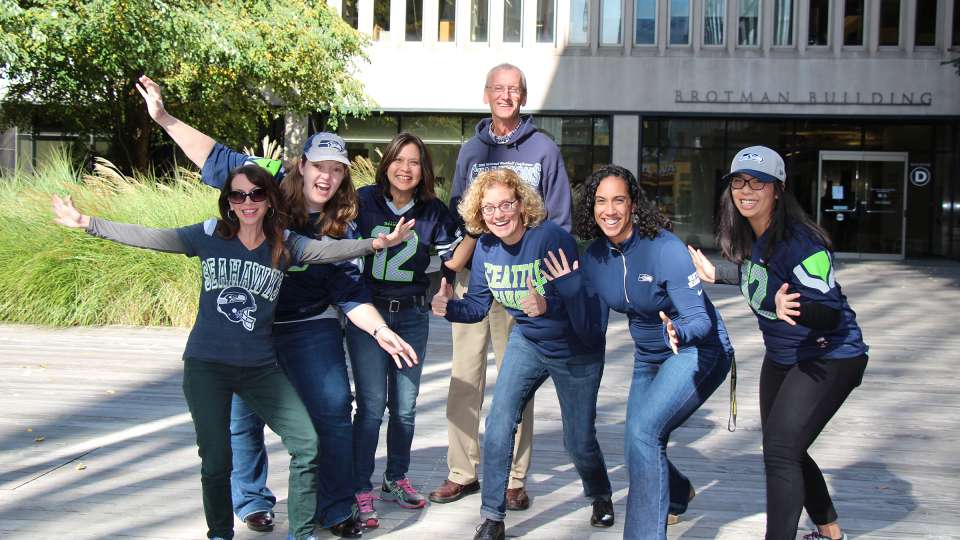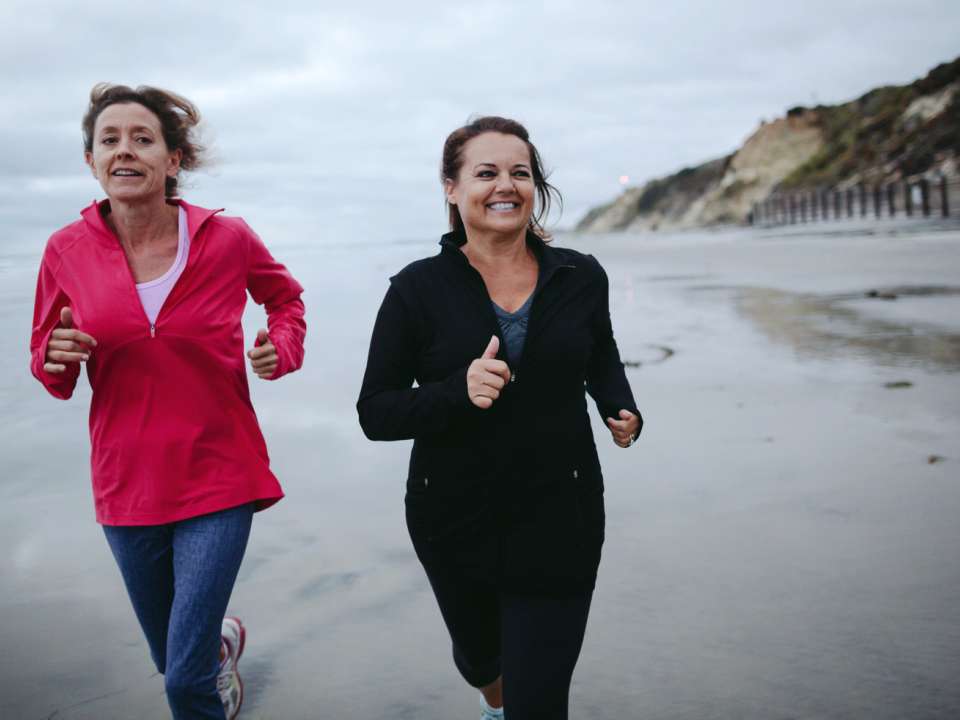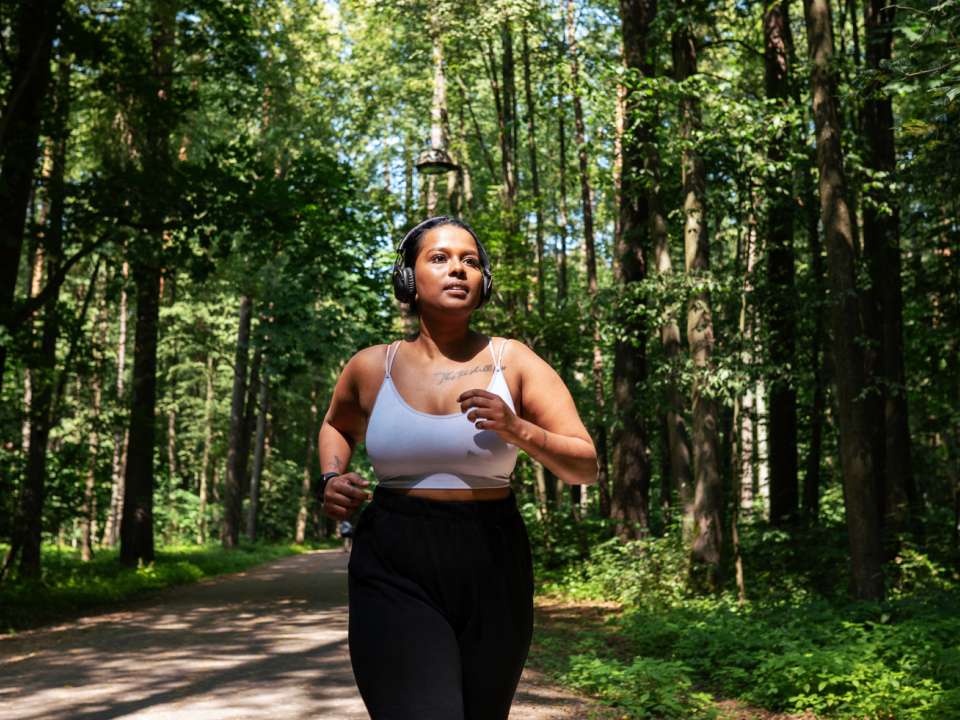Seahawks’ Team Physicians Share Their Top 6 Tips for Staying Fit This Fall

Football season is a busy time of the year for Jonathan Drezner, M.D., and Ashwin Rao, M.D., medical team physicians for the Seattle Seahawks. Their job is to make sure our beloved Seahawks are safe to play by taking care of any medical concerns that arise throughout the year, before or during games or during the offseason.
And while most of us aren't Seahawks, having a game plan in place for how you’ll keep active in the fall is just as important for you as it is for pro athletes. That's why we asked Drezner and Rao to share some of their favorite tips for staying fit this autumn.
1. Keep Moving
Whatever you do, the most important thing for your health is to do something. It’s easier to be active in the summer months when the sun is out and the days are long, but fitting in movement is important for your mental and physical health as the days get shorter and cooler, says Rao.
“Try to be active throughout the year regardless of the weather,” he says. “It’s particularly important as we come out of the summer months where people are naturally inclined to be active and generally feel better and have a better mood and fitness level.”
2. Increase Your Workout Intensity Slowly
Fall is a popular time for road races. If you’re a runner training for an event, like the upcoming Seattle Marathon, be sure to increase your mileage slowly, says Drezner.
“We monitor this very closely with the Seahawks, how much each player is working, playing, running, et cetera,” he says. “But the same principles translate to recreational athletes.”
If you’re used to running three miles two or three times a week and suddenly increase your training to double or triple that, that sudden increase in workload will put you at a higher risk for injury. How slowly you should increase your running volume depends on the person, but about 10 percent per week usually leaves you in a safe zone, Drezner says.
3. Have Indoor Options
Residents of the Pacific Northwest are notorious for exercising in the elements. But if working out in the rain or drizzle isn’t for you, make sure you have a place to exercise inside.
“Understand your alternatives,” says Drezner. “If running outdoors or outdoor activity is no longer as ideal because of the weather, then make sure you have mechanisms for alternative exercise.”
Drezner recommends joining a local gym, investing in some equipment for your home or using at-home exercise videos on the days you don’t want to go outside.
4. Be a Vigilant Cyclist
If you ride your bike, either as a means of transportation or for exercise, fall is a good time to play it extra safe. Of course, you should wear a helmet year-round, says Drezner, but other bike safety tips are more season-specific.
“Some of our roads and bike lanes and painted lines get more slick and slippery when it is wet out,” he says. “Rounding corners can be dangerous, and motor vehicles don’t always see us as well when it’s raining and their wipers are on.”
Consider riding a bit more slowly in the rain, says Drezner, and don’t hit the road without reflective gear.
5. Mix It Up
The Seahawks don’t spend every waking hour playing football. Their exercise regimens include strength training, cardiovascular conditioning, stretching and more, says Drezner. And that variety is crucial for their athletic performance and their overall health.
“The same can be true for others. When you engage in different activities, not only does it keep your interest, but it stimulates your body in such a way to help you stay fit,” he says.
If you’re a one-exercise kind of person, consider reserving one day each week for trying something new. For example, if you usually run five days a week, think about running four days a week and going to a yoga class once a week. Not only will you avoid burnout, but you might just become a better runner, too.
6. Take Care of Your Whole Self
The Seahawks are famous for incorporating mindfulness into their training—and that may translate to better outcomes in life and on the football field, says Rao.
“There’s a lot of emphasis with the Seahawks on holistic care—taking care of the whole person,” says Rao, explaining that the team employs a staff psychologist and a nutritionist, and promotes a generally positive message to try and accomplish tasks.
“If you translate all the positive messages that the program puts forth, that’s applicable to people’s everyday lives,” he says. “You have to be prepared and persistent and if you do those two things, then generally things are going to work out alright.”

 Healthy ideas for your inbox
Healthy ideas for your inbox





